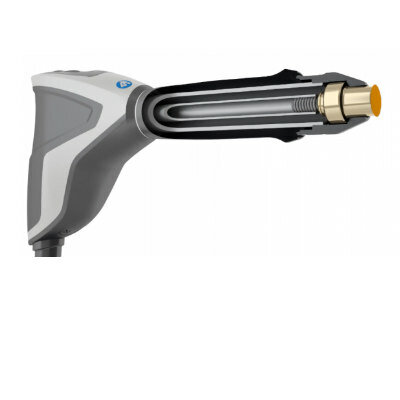Surgery No Help for Mild Knee Osteoarthritis
By HospiMedica International staff writers
Posted on 11 Sep 2014
Arthroscopic surgery for degenerative meniscal tears in patients with mild knee osteoarthritis (OA) had no benefit for function or pain, according to a new study.Posted on 11 Sep 2014
Researchers at McMaster University (Hamilton, ON, Canada) searched MEDLINE, Embase, and the Cochrane databases for randomized controlled trials (RCTs) published from 1946 to 2014. Two reviewers independently screened all titles and abstracts for eligibility, and assessed risk of bias for all included studies and pooled outcomes using a random-effects model. In all, seven RCTs involving 805 patients were included in the review.
The results showed that the pooled treatment effect of arthroscopic surgery did not show a significant or minimally important difference (MID) between treatment arms for long-term functional outcomes. Short-term functional outcomes between groups were significant, but did not exceed the threshold for MID. The researchers also found that arthroscopic surgery did not result in a significant improvement in pain scores in the short term or in the long term. The study was published on August 25, 2014, in CMAJ.
“Arthroscopic debridement or washout of knee osteoarthritis has come under lots of scrutiny, based upon trials that suggest patients get no benefit from the procedure. We're concerned that many surgeons worldwide may still be doing this procedure,” said senior author Mohit Bhandari, MD, PhD. “In the context of limited healthcare resources, clinicians must carefully select patients with degenerative meniscal pathology who would benefit from surgical intervention. The results of this meta-analysis suggest that an initial trial of non-operative interventions should play a large role for middle-aged patients.”
OA is a group of mechanical abnormalities involving degradation of joints, including the articular cartilage and subchondral bone. Symptoms may include joint pain, tenderness, stiffness, locking, and sometimes an effusion. A variety of causes—hereditary, developmental, metabolic, and mechanical deficits—may initiate processes leading to loss of cartilage. As a result of decreased movement secondary to pain, regional muscles may atrophy, and ligaments may become more lax. OA of the knee affects approximately 250 million people worldwide (3.6% of the population).
MID is defined as the smallest effect that an informed patient would perceive as valuable enough to justify a change in therapeutic management, when weighing the anticipated benefits against the possible harms of an intervention.
Related Links:
McMaster University














